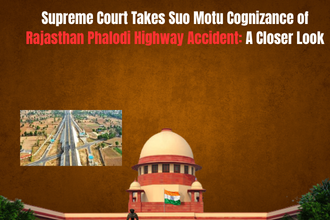New Delhi, August 22, 2025 – A Public Interest Litigation (PIL) has been filed before the Supreme Court challenging the nationwide rollout of 20 percent ethanol-blended petrol (E20). The petition, filed by advocate Akshay Malhotra, raises serious concerns about the compatibility of E20 fuel with vehicles manufactured in India, potential damage to engines, lack of consumer choice, and absence of transparency in fuel labelling.
The plea argues that while ethanol blending is a part of the government’s strategy to reduce crude oil imports and promote green energy, the sudden and forced introduction of E20 petrol has put millions of vehicle owners at risk.
What is Ethanol-Blended Petrol?
Ethanol-blended petrol is a mixture of petrol and ethanol (a biofuel derived mainly from sugarcane, corn, or other biomass). Ethanol is considered a renewable fuel that reduces greenhouse gas emissions and supports India’s commitment towards climate change goals.
Currently, most countries blend up to 10% ethanol (E10) in petrol. However, India has advanced its ethanol-blending program to 20% (E20), aiming for full rollout by 2025, in line with the government’s National Policy on Biofuels (2018).
Why Has a PIL Been Filed?
According to the PIL, vehicles manufactured before April 2023 – including those that comply with the BS-VI emission norms – are not designed to run on E20 fuel. Automobile manufacturers and independent research studies have repeatedly flagged that high ethanol content in petrol:
- Corrodes engine components such as fuel pipes, injectors, and carburetors.
- Lowers fuel efficiency, resulting in higher consumption and expenses for consumers.
- Causes premature wear and tear, reducing the overall lifespan of vehicles.
The petition emphasizes that consumers are left without any remedy since vehicle insurance will not cover such damages, and manufacturers may also deny warranty claims, citing non-compliance with fuel compatibility.
Global Practices in Ethanol Blending
The PIL draws comparisons with international practices:
- United States: E10 (10% ethanol blend) is standard, but ethanol-free petrol (E0) is also available for consumers. Clear labelling helps buyers make informed decisions.
- European Union: Both E5 (5% ethanol) and E10 blends coexist in the market, with proper labelling of ethanol content.
In contrast, India has made only ethanol-blended petrol available at fuel stations without any labels or composition details. The plea alleges that this lack of consumer choice and transparency violates the Consumer Protection Act, 2019.
Key Concerns Raised in the PIL
- Consumer Rights Violation
The absence of ethanol-free petrol in the Indian market denies consumers the fundamental right to choose safe and compatible fuel for their vehicles. - Impact on Vehicles
Millions of cars and two-wheelers currently in use are not designed for E20 fuel. Even vehicles manufactured in the past two years may face engine damage, efficiency loss, and safety issues. - Insurance and Warranty Exclusion
Since most manufacturers and insurers do not cover ethanol-related damage, consumers may be forced to bear the full financial burden of engine repairs and replacements. - Lack of Labelling
Unlike in the US and EU, petrol pumps in India do not disclose the ethanol percentage in fuel. This lack of fuel composition labelling misleads consumers and prevents informed decision-making. - Need for Impact Study
No large-scale study has been conducted in India on the long-term effects of E20 fuel on vehicle performance, emissions, and road safety.
Reliefs Sought by the Petitioner
The petitioner has requested the Supreme Court to:
- Ensure the availability of ethanol-free petrol across all fuel stations in India.
- Mandate clear labelling of ethanol content at petrol pumps.
- Direct enforcement of the Consumer Protection Act to safeguard consumer interests.
- Conduct a nationwide study on the impact of E20 on vehicle degradation, emissions, and safety before its compulsory rollout.
The Government’s Ethanol Push
The Indian government has aggressively promoted ethanol blending to cut reliance on imported crude oil, reduce carbon emissions, and support sugarcane farmers. By 2025, India aims to achieve 20% ethanol blending nationwide.
According to the Ministry of Petroleum and Natural Gas, ethanol blending has already resulted in:
- Reduced carbon emissions.
- Savings in foreign exchange, as less crude oil is imported.
- Boost to rural economy, especially sugarcane and maize farmers.
While these benefits are significant, experts suggest that the government must also balance environmental goals with consumer rights and vehicle safety concerns.
Industry and Consumer Response
The automobile industry has expressed mixed reactions. While future vehicles (post-2023 models) are being designed for E20 compatibility, manufacturers acknowledge that the existing fleet of over 30 crore vehicles in India could suffer severe performance issues.
Consumers, too, have raised concerns about:
- High maintenance costs due to ethanol-induced engine damage.
- Reduced mileage, directly increasing fuel expenses.
- Lack of awareness about ethanol content in the fuel they purchase.
What’s Next?
The Supreme Court is expected to examine whether the compulsory rollout of E20 petrol without consumer choice violates constitutional rights and consumer protection laws. The PIL could potentially lead to:
- Introduction of dual fuel options – E20 and ethanol-free petrol.
- Mandatory disclosure and labelling at petrol stations.
- Extended transition period before full E20 rollout.
- Independent scientific studies on the safety and efficiency of E20 in Indian conditions.
Conclusion
The PIL against 20 percent ethanol-blended petrol has sparked a critical debate on the balance between environmental sustainability and consumer rights. While ethanol blending offers long-term benefits for energy security and climate change, the lack of choice, transparency, and compatibility with existing vehicles raises genuine concerns.
The Supreme Court’s intervention could pave the way for a consumer-friendly ethanol policy that ensures sustainability without compromising vehicle safety, affordability, or consumer protection.
As the matter unfolds, millions of vehicle owners across India await clarity on whether they will continue to be compelled to use E20 petrol – or if alternative, ethanol-free fuel will soon make a comeback at fuel stations.
Also Read
Plea in Supreme Court Challenges BCI’s Three-Year Ban on New Law Colleges
Himachal Pradesh High Court: Saying ‘Pakistan Zindabad’ Is Not Sedition Unless India Is Denounced


